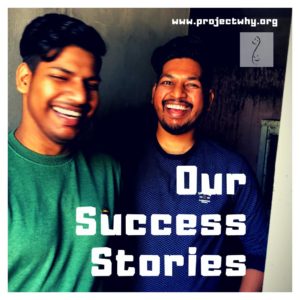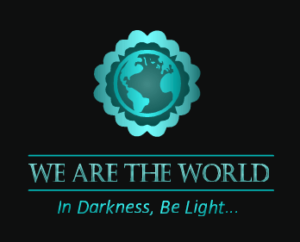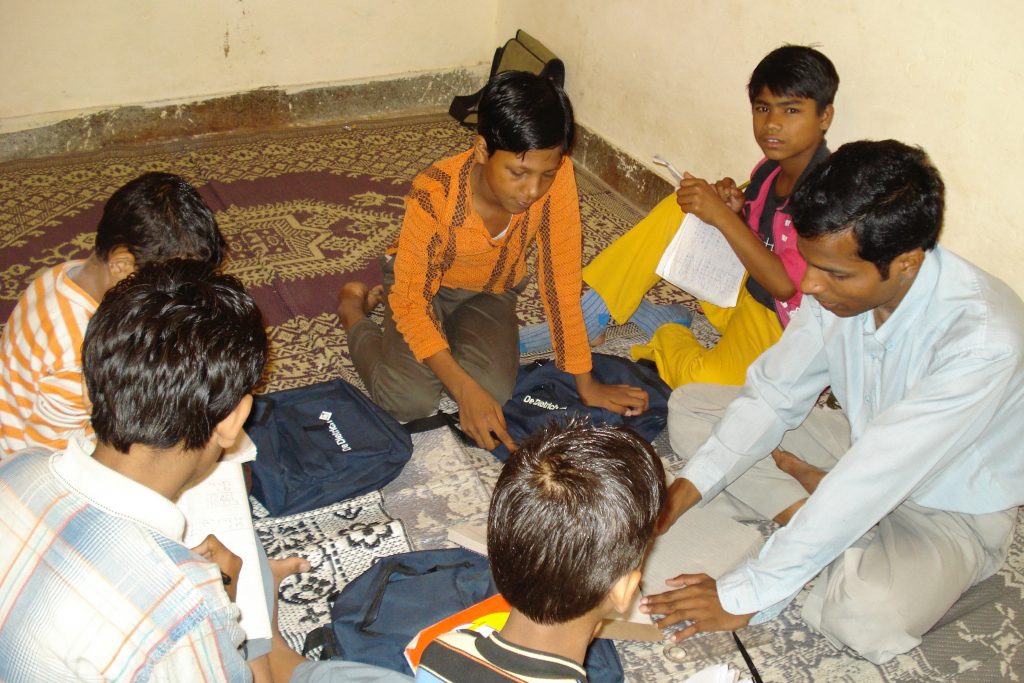
by anouradha bakshi | Mar 28, 2017 | Anou's Blog, Uncategorized
(Posting a series of success stories from the compilation The Project Why Stories 2000-2016)
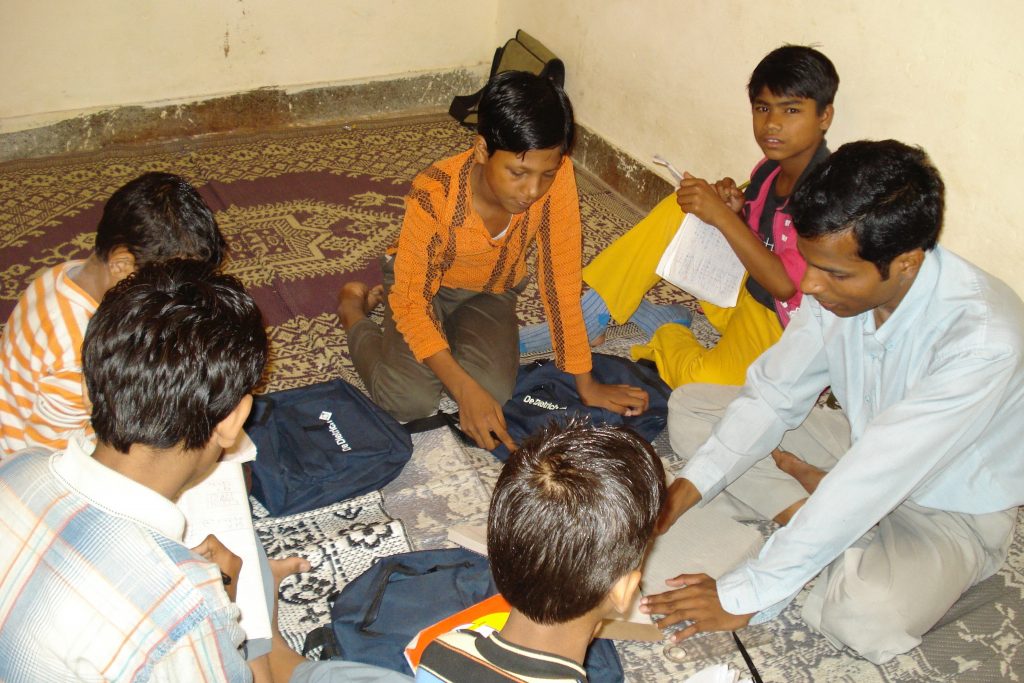
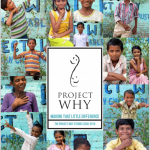
Chandan came to Project WHY in 2002 as an electrician. He lived in the community of Giri Nagar, where our original centre was based. The Project was in search of an electrician to do the odd repairs around the centre. Vinod Chaudhary, a friend of the Project WHY told us about his nephew, Chandan, who was willing to assist.
After a few months of such work, Chandan explained to us that he wanted to do more than just fixing lights; he wanted his career to progress and he wanted to leave a real impact on this world. As he was interested in teaching, and demonstrated raw talent in maths and science, Project WHY hired him as a Primary teacher in 2003. Chandan worked as a full-time teacher by day and an electrician by night in order to supplement his income.
Chandan was an excellent teacher but, having been brought up in a society rife with casteism, his behaviour raised issues for the Project. In India, no matter how educated one is, an upbringing in the rural village of Bihar renders the caste system a way of life, making it a difficult philosophy to eliminate.
India’s caste system is among the world’s oldest forms of surviving social stratification. The system divides Hindus into rigid hierarchical groups based on the occupation of the family into which one is born. Traditionally, the system bestowed privilege upon the upper castes whilst sanctioning the repression of the lower castes by privileged groups. Often criticized for being unjust and regressive, the system persists in many rural and urban cities.
As a non-discriminatory mission, Project WHY employs staff from all walks of India, regardless of community and caste. Unfortunately, people like Chandan were taught from a young age to avoid any group situation that involved both high and low class. Initially, we did not pay much attention to Chandan’s behaviour in the hope that he would naturally integrate into our way of thinking. He would occasionally avoid the Project’s group activities that involved groups from mixed castes, but otherwise did not pose a problem. However, in 2004, when our local tea seller lady Seema picked a fight with Chandan for having refused to drink her tea, the Project WHY team had to step in to calm the situation. Seema reported Chandan to a village elder that night and the ensuing violence between communities required intervention. We found ourselves using Chandan to explain to the community that violence was not the answer and that all issues could be resolved in time.
After working with Project WHY over time, seeing its progressive approach to hierarchy and understanding the value of each member of society, Chandan slowly changed his mindset and began accepting all castes equally. By welcoming him into a career that he believed to be above his reach, we taught him to do the same for others, and he now finds himself relaying the same message back to his village in Bihar.
In 2004, Chandan wanted to do more and learn more. He took extra classes with Project WHY’s resident mathematician, Naresh, in the hope of teaching secondary classes in the future. In 2005, he began teaching our Junior Secondary classes, but continued to teach electricals for those looking for careers in the field. It also transpired that he was a talented artist and the children enjoyed learning to draw under his guidance.
After eight successful years with the Project, Chandan, along with another teacher, Pravin, wanted to take the vision and concept of Project WHY and apply it to their own community of Bihar by creating a new NGO. In 2010, Chandan therefore created the “Deepjyoti Charitable Trust” which works in a similar way to Project WHY, but targets education and social mobility in his home state of Bihar. Chandan has replicated our concept, initially taking small groups of children into education, and going on to expand into an all-round support centre. Project WHY provided its expertise to the trust and acted as an adviser, as well as providing financial assistance for its first two years. We continue to maintain close relations with Chandan and his team, but the organisation is now able to stand on its own two feet. Chandan and his Pravin are now proud owners of an NGO that makes a genuine difference in Bihar and playing it forward!
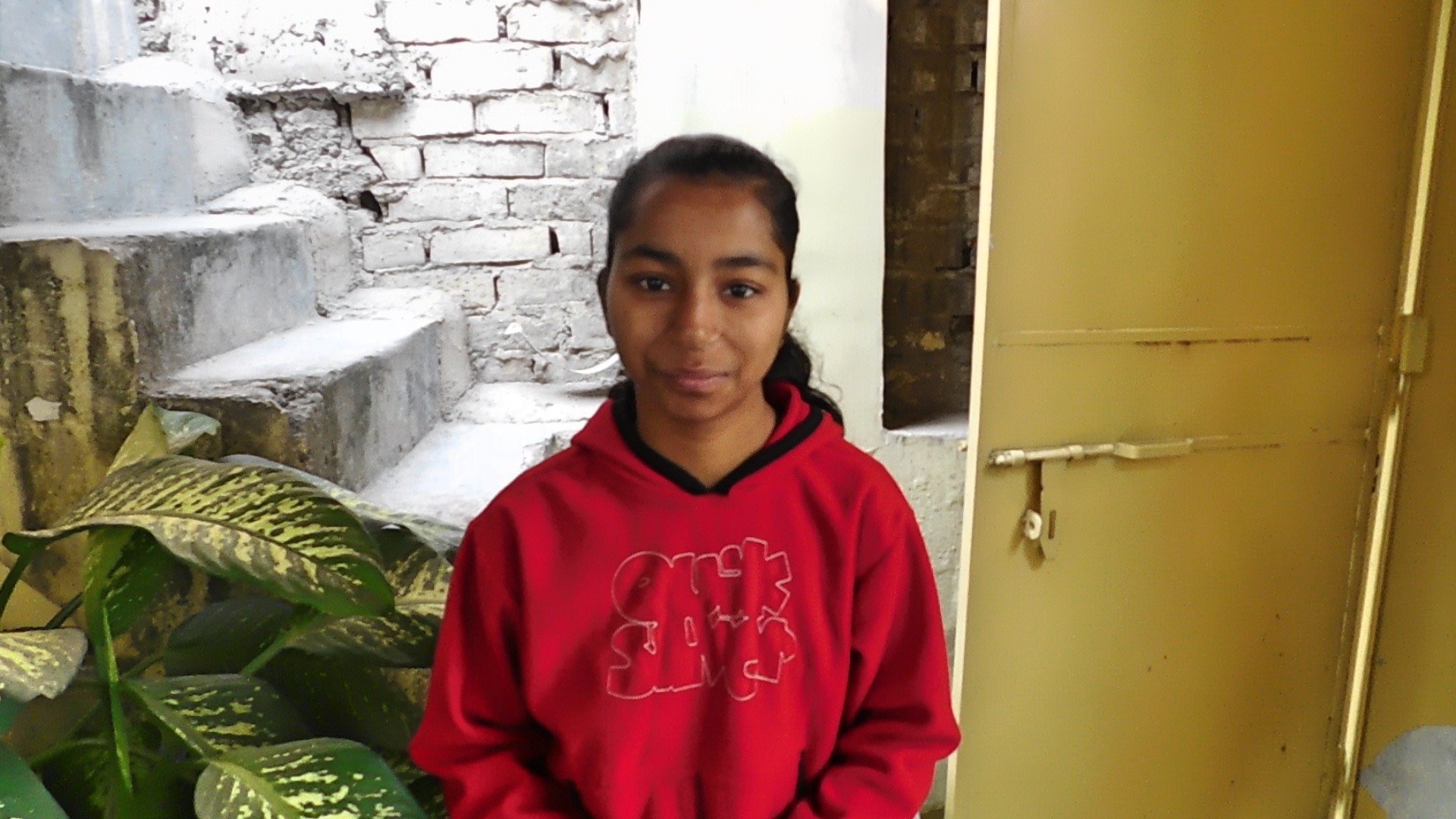
by anouradha bakshi | Mar 21, 2017 | Anou's Blog, Uncategorized
(Posting a series of success stories from the compilation The Project Why Stories 2000-2016)
When Babli first came to Project Why in 2004, she was a bright-eyed, feisty girl; what some Indians would call Bindaas, meaning carefree and confident. She loved books and seemed to always have a smile. It took Project WHY’s resource persons some time to realize that every breath she drew was an effort. Babli had a hole in her heart from birth and needed corrective surgery. Her family was unable to come up with the needed funds. They had simply accepted that she would not live long.
In India, little girls are sometimes considered dispensable, their hearts not worth mending. The Census of India 2011 demonstrates a decrease in the population ratio of female children (age group 0-6 years) of India compared to 2001. For every 1000 male children, there were now 914 female children, a drop from 945 – where are our girls? Investigations show that female infants experienced a significantly higher mortality rate than male infants in all major states.
Thanks to our wonderful friends, Project Why was able to raise the funds for Babli by 2005 and the operation was performed successfully. It was scary and painful for this innocent little girl, but Babli’s bindaas spirit saw her through it all.
After her recovery, Babli was expected back in school but, to everyone’s shock, it emerged that she would not be able to continue her education. Her mother, being the sole earning member of the family, didn’t have time to take Babli to school. She also needed her to take care of her younger sister. The father was busy playing cards, and it eventually fell to Babli to manage the father’s work cart that sold tobacco and biscuits.
One step forward and two steps back. The Project WHY resource persons soon found Babli sitting on the cart selling chewing tobacco, cigarettes and biscuits instead of being in school, and her little sister standing in the background. She told them about how her name had been struck off from the rolls of the school and why she was working. But Babli’s words, spoken when she had trouble breathing, still resonated: “I want to be a police,” she said, without hesitation, when asked about her dreams.
Project Why found the situation unacceptable, and took steps to change it. After a meeting with her parents and a visit to the nearby government school, Babli was back in school.
Today, thanks to a kind sponsor, Babli studies in Class 9 at English Medium Boarding School in New Delhi, where she often tops her class. True, she won’t become a ‘police’ as the aftermath of her surgery resulted in scoliosis, but she will shine. Her education, which had fallen into peril this year because of a major donor backing out, will continue thanks to another kindhearted donor who has stepped in to fill the gap. This is Project WHY’s attempt to prove that given equal opportunities, children from the slum can do as well as those from the privileged classes.
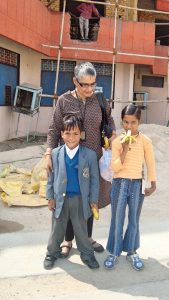
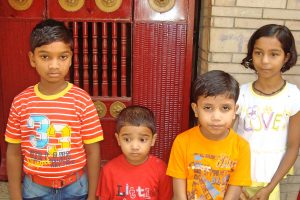

by anouradha bakshi | Mar 14, 2017 | Anou's Blog, Uncategorized
(Posting a series of success stories from the compilation The Project Why Stories 2000-2016)

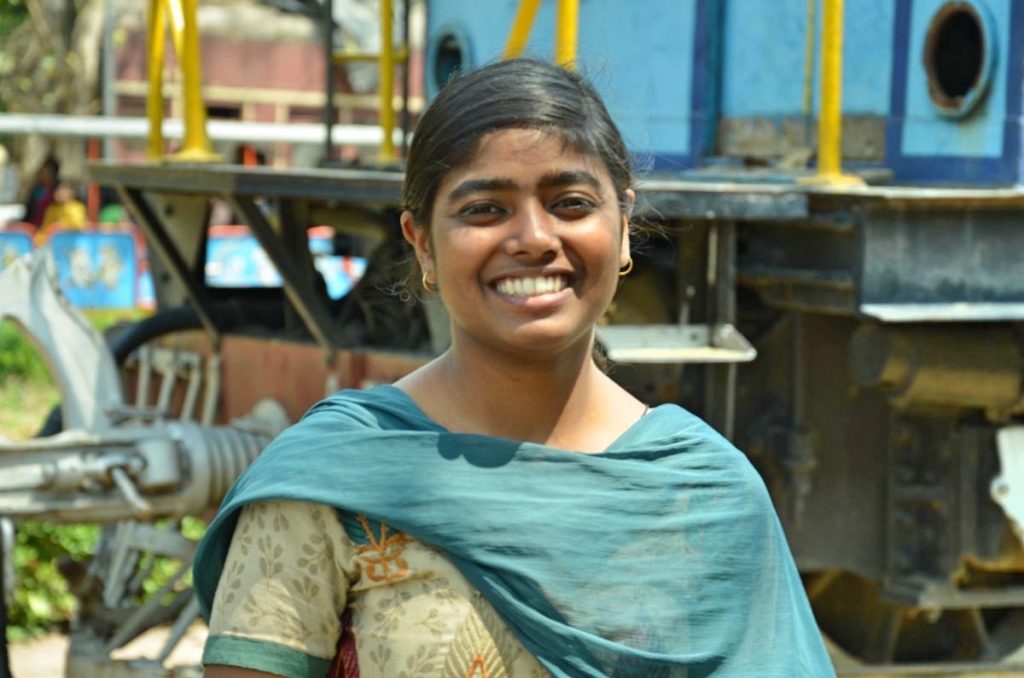
project why
Anita’s relationship with Project WHY started in 2002, when she started studying as a young girl studying in Class 3. Her father comes from Bihar and moved to Delhi in the late 1980s to look for education. Due, however, to financial problems, he was forced to start working at the nearby factory at an early age and settled in the Giri Nagar area.
In 2004, with Anita in Class 6, her father, the family’s sole earner, was told that there was no work in the factory and told to take a two month ‘break.’ Whilst her mother had previously devoted her life to running the house, she was forced to begin running a stitching and embroidery service from home. In an effort not to make her family suffer, Anita’s mother combined this income with her life savings to support their lifestyle.
Anita is a glowing example of the opportunities that Project WHY can create. She attended the centre in Girin Nagar until Class 12, and recorded consistent scores of 75-80% throughout her school career. As one of our brightest students, she secured admission to the prestigious Delhi University to do her B-Com in 2012.
Anita returned to us after graduating, wishing to provide the same opportunities to similarly underprivileged children. Her parents were supportive, indeed they knew she was safe with us and did not want her working anywhere else. As one of our oldest and most successful students, we were happy to taker her on as a primary teacher. She then went on to teach some of our brightest secondary students.
In 2015, she came to us with the news that she would have to leave the job, as her parents had found a boy in the village and wished for her to get married. We had no choice but to accept this. Yet, four months later, Anita returned and asked to resume her old post, which we were happy to give her. The boy’s family had demanded a large amount of money as ‘dowry,’ claiming her to be dark in skin, and apparently not sufficiently pretty. Yet Anita, as a product of Project Why, had learned to speak for her rights. She knows her self-worth, beauty and value to society and refused to get married under these conditions. She therefore spoke herself to the family to reject the boy and the forced marriage.
Dowry or Dahej is the payment in cash and/or in kind by the bride’s family to the bridegroom’s family along with the giving away of the bride (called Kanyadaan) in Indian marriage. It runs across all classes and castes. Although Dowry was legally prohibited in 1961, it continues to be prevalent and highly institutionalised. The groom often demands a dowry consisting of a large sum of money, vehicle, house, furniture, and electronics. The dowry system puts great financial burden on the bride’s family
At Project WHY, we pride ourselves in discussing prevalent social issues such as caste, dowry, violence against women and sexual abuse. We believe that we have made our resource persons fully aware of their rights and responsibilities. Anita, at that moment, stood up for her rights and refused to get married on those terms and conditions. “I am as good as any girl on this planet,” she voiced.
Today, Anita is back teaching and continues to value education above all else. Together with her mother, she is funding her brother’s B-Tech from IP University, at a cost of INR 60,000 per year, striving to give him the same opportunities in life that she had. Concurrent to her work as a Secondary teacher, Anita is now pursuing her M-Com. She wants to apply for a Government job, from which she feels she can have an impact on an even wider scale. Yet, always thankful of her roots, she will never stop supporting Project WHY, both through donation and through education.
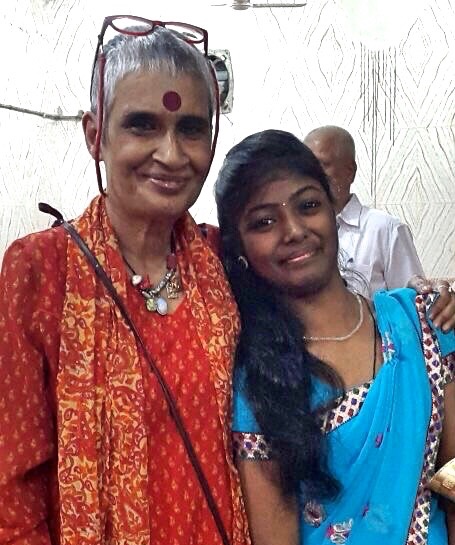
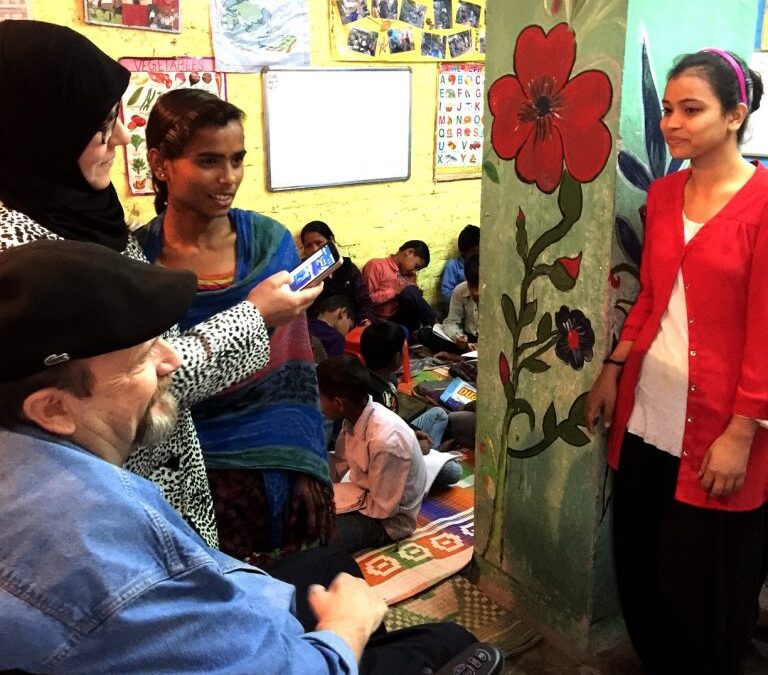
by anouradha bakshi | Mar 7, 2017 | Anou's Blog, Uncategorized
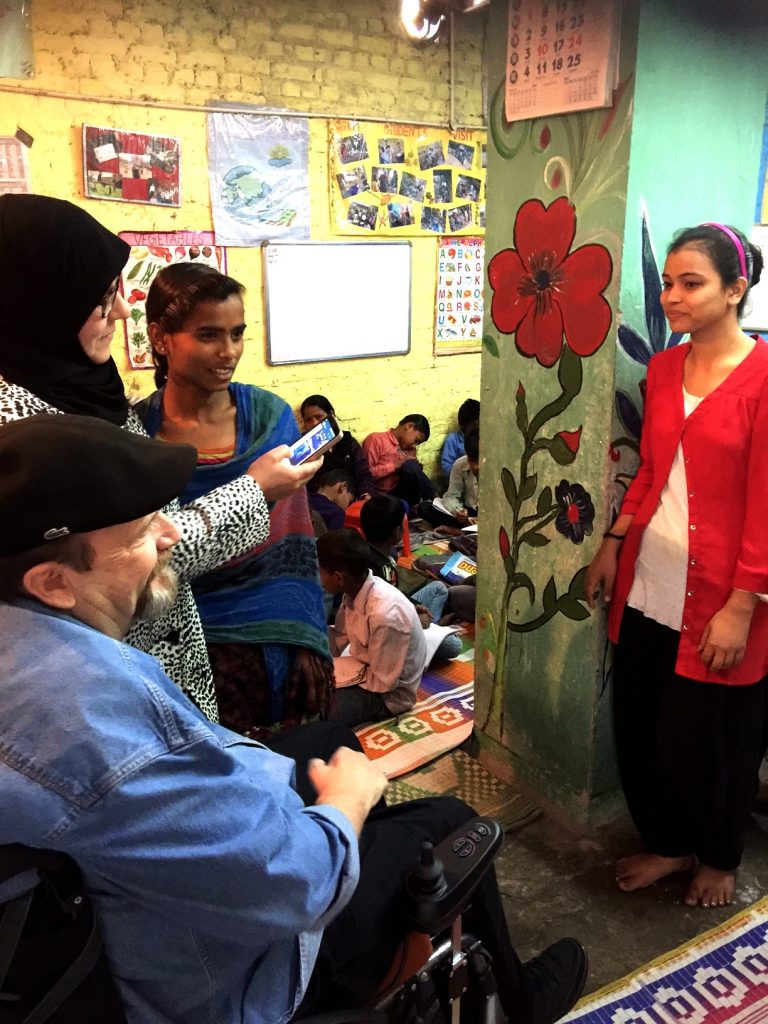
“At the age of six I wanted to be a cook. At seven I wanted to be Napoleon. And my ambition has been growing steadily ever since” wrote the inimitable Salvador Dali.
Dreams are never too big. Dreams are never too small. Dreams are dreams and dreams come true if you dare to dream. At Project WHY we do.
Last week we welcomed Lionel and his charming wife Leila. Lionel suffered an accident that left him paralysed and no one thought that would come the day when he would come and visit the children he had been supporting for many years. But Lionel is a dreamer who holds on to his dreams. His wife decided that come what may, Lionel would meet his beloved children at Project WHY.
No road was too bumpy; no door to narrow to come into the way of this dream. Lionel visited Okhla and Yamuna and could hold and hug the children he had only seen pictures of. The wheelchair could not climb stairs but the children came down and what else would be the topic of the day but dreams.
It was a wonderful and heart warming moment as child after child came to them and told they what their dream was: become a teacher, doctor, software engineer, pilot, army officer, police officer, singer, cricketeer, astronaut. It was touching to see boys and girls of all ages share their dream and for a tiny moment one forgot that these children came from underprivileged homes where surviving from one day to another was a challenge. But no challenge can come in the way of dreams and no dream is impossible.
As I watched these wonderful children some of whom I have seen grow for the past decade, I knew that the task was far from over and that these dreams had become mine. It was now time to make them come true!











